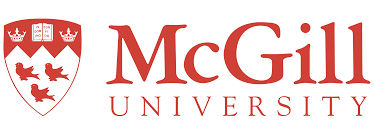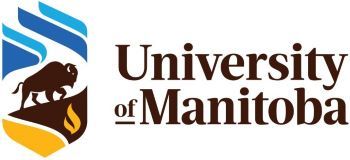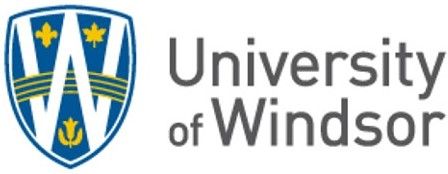24 Masters in Civil Engineering Courses in Canada- Apply Now!
A Master’s in Civil Engineering in Canada typically requires two years of study, coursework, and a research thesis that focuses on developing a discipline for choosing and putting into practice the best management techniques for companies with an emphasis on engineering, emerging technologies, and all interconnected systems. It covers challenges at both the strategic and operational levels and provides the foundation necessary for problem-solving techniques, cross-disciplinary collaboration, and an analysis of engineering management issues.
Generally, Master’s in Civil Engineering in Canada fees range between CAD 24,000 for local students and CAD 38,000 for international students each year. Admission is based on the capacity of the university of choice. There are many Universities for Master’s in Civil Engineering in Canada that you can choose from. Read the guide to know the key details about studying Master’s degree in Civil Engineering in Canada.
Why study Master’s in Civil Engineering in Canada?
Canada’s open immigration laws and international policies make studying for a Master’s in Civil Engineering in Canada advantageous in many ways. For overseas students, this opens up options in the following ways:
Exposure to cutting-edge research
Since Canadian institutions prioritize research and innovation, students there will have access to the most recent tools, techniques, and ideas in their profession, which can be helpful for career advancement. Moreover, post-completion of a Master’s in Civil Engineering in Canada, jobs of a good standard are very likely to be available to students.
Education of High-Quality
Employers highly value degrees in engineering management earned from Canadian institutions because of their reputation for providing education of the highest caliber.
Strong Economy
A postgraduate with a Master’s in Engineering Management degree will have a decent chance of obtaining employment in their industry since Canada has a robust economy and a stable labor market.
Diverse culture
Studying in Canada exposes students to various cultures, viewpoints, and ways of thinking because Canada is a multicultural nation.
International Experience
Studying in Canada allows students to travel, which may help them improve personally and professionally.
Master’s in Civil Engineering in Canada: Course Highlight
Universities for Master’s in Civil Engineering in Canada. Following is a general highlight of courses offered by universities for Master in Engineering Management in Canada.
Degree |
Duration |
Average Master’s in Civil Engineering in Canada fees |
Course Type |
General Eligibility |
Exam required |
Advanced Structural Design. |
1- 2 years |
CAD 15,000 to CAD 30,000 per year |
Full-time/ Part-Time |
|
GMAT or GRE Scores |
Advanced Simulation of Sustainable Structural Systems. |
2 years |
CAD 15,000 to CAD 30,000 per year |
Full-time |
|
GMAT or GRE Scores |
Building Materials. |
1-2 years |
CAD 10,000 to CAD 25,000 per year |
Full-time/ Part-time |
|
GMAT or GRE Scores |
Critical State Soil Mechanics & CPD and Strategic Management. |
2 years |
CAD 15,000 to CAD 30,000 per year |
Part-time/ Full Time |
|
GMAT or GRE Scores |
Environmental Risk and Responsibility. |
1- 2 years |
CAD 15,000 to CAD 30,000 per year |
Full-time |
|
GMAT or GRE Scores |
Types of Master’s in Civil Engineering in Canada
There are multiple types of Master’s degrees in Civil Engineering offered in Canada, including-
- Master of Applied Science (MASc) in Civil Engineering: is a research-based degree where Students conduct original research and write a thesis.
- Master of Science (MSc) in Civil Engineering: is a research-based degree the same as above; it requires students to conduct original research and write a thesis.
- Master of Engineering (MEng) in Civil Engineering: is a course-based degree where students take various advanced courses and may complete a project or internship.
- Executive Master of Business Administration (EMBA) in Civil Engineering: It is a course-based degree where students take various advanced courses focusing on business and management.
Key specializations that may be taken are:
- Structural Engineering
- Geotechnical Engineering
- Transportation Engineering
- Environmental Engineering
- Coastal Engineering
- Water Resources Engineering
- Construction Engineering and Management
- Earthquake Engineering
Best Universities for Master’s in Civil Engineering in Canada
There are many programs in Universities for Master’s in Civil Engineering in Canada; some of the universities are:
University of Toronto: Offers a Master of Applied Science (MASc) in Civil Engineering with course highlights such as advanced structural engineering, transportation engineering, and environmental engineering.
University Type |
Public Research University |
QS World Ranking |
#34 in QS World University Rankings 2023. |
Average fees in CAD |
CAD 24,000 per year for domestic students and CAD 38,000 per year for international students |
Program offered |
|
Admission deadline |
Usually around January for September intake. |
University of British Columbia: Offers a Master of Applied Science (MASc) in Civil Engineering with course highlights such as structural engineering, geotechnical engineering, transportation engineering, and water resources engineering.
University Type |
Public Research University |
QS World Ranking |
#47 in QS World University Rankings 2023. |
Average fees in CAD |
CAD 22,000 per year for domestic students and CAD 35,000 per year for international students |
Program offered |
|
Admission deadline |
Usually around January for September intake |
McGill University: Offers a Master of Applied Science (MASc) in Civil Engineering with course highlights such as advanced structural engineering, geotechnical engineering, transportation engineering, and environmental engineering.
University Type |
Public Research University |
QS World Ranking |
#31 in QS World University Rankings 2023. |
Average fees in CAD |
CAD 22,000 per year for domestic students and CAD 35,000 per year for international students |
Program offered |
|
Admission deadline |
Usually around December for September intake. |
University of Alberta: Offers a Master of Applied Science (MASc) in Civil Engineering with course highlights such as advanced structural engineering, geotechnical engineering, transportation engineering, and environmental engineering.
University Type |
Public Research University |
QS World Ranking |
#31 in QS World University Rankings 2023. |
Average fees in CAD |
CAD 18,000 per year for domestic students and CAD 30,000 per year for international students |
Program offered |
|
Admission deadline |
Usually around January for September intake. |
University of Waterloo: Offers a Master of Applied Science (MASc) in Civil Engineering with course highlights such as advanced structural engineering, geotechnical engineering, transportation engineering, and water resources engineering.
University Type |
Public Research University |
QS World Ranking |
#154 in QS World University Rankings 2023. |
Average fees in CAD |
CAD 21,000 per year for domestic students and CAD 34,000 per year for international students |
Program offered |
|
Admission deadline |
Usually around January for September intake. |
Note- Certain course highlights may vary by university and program. We recommend checking with the universities you are interested in to confirm their specific course highlights and program details. Moreover, it’s also worth mentioning that other universities in Canada offer Civil Engineering programs; these are some examples and are not an exhaustive list.
Course Curriculum of Master’s in Civil Engineering in Canada
The Master’s in Civil Engineering in Canada scope focuses on research on building a discipline for selecting and implementing the best management practices for businesses focusing on engineering, emerging technologies, and all connected systems. It addresses difficulties on both the strategic and operational levels and offers the grounding essential for problem-solving strategies, multidisciplinary cooperation, and the examination of engineering management concerns.
The topics and subjects covered in a Master’s in Civil Engineering in Canada can vary depending on the university and specific program chosen. For Master’s, Universities may require specific coursework experience in previous academics. Some common topics and subjects that may be covered include-
- Data Analysis and Decision Support Systems
- Design and Operation of Man-Machine Systems
- System Simulation and Computer-Aided Design
- Operations Engineering and Management
- Quality Engineering and Management
- Financial Engineering and Cost Management
Eligibility Criteria for Master’s in Civil Engineering in Canada
For Master’s in Civil Engineering in Canada requirements, admission is based on the Eligibility of the following:
- Standardized tests such as the GRE or the GMAT.
- English proficiency tests such as the TOEFL or IELTS are necessary.
- Universities mandate a minimum grade point average (GPA) to qualify for the program.
Admission Requirements for Master’s in Civil Engineering in Canada
Here are some of the general Master’s in Civil Engineering in Canada requirements:
Educational requirements: To be eligible to apply for a Master’s degree in Civil Engineering in Canada, you will typically need to have completed a Bachelor’s degree in Civil Engineering or a related field, with a minimum GPA of 3.0. Some universities may also require specific undergraduate coursework in Civil Engineering or related fields.
Exam requirements: Most universities require a standardized test result, such as the Graduate Record Examination (GRE), as part of the application process. Some universities may also require the Test of English tests such as TOEFL or IELTS to demonstrate English proficiency.
Document requirements: You will typically need to submit the following documents as part of your application:
- Official transcripts from all post-secondary institutions attended
- GRE scores
- TOEFL or IELTS scores (if required)
- A statement of purpose or personal essay
- A resume or CV
- Two or three letters of recommendation
Visa requirements: To study in Canada, you must apply for a study permit. To be eligible for a study permit, you will need to provide the following documents:
- A valid passport
- Proof of acceptance to a designated learning institution in Canada
- Proof of financial support for your studies and living expenses
- A medical examination (if required)
Work experience: It’s not a requirement for most universities, but some universities may prefer students with previous work experience in Civil Engineering.
Note: Master’s in Civil Engineering in Canada admission-specific requirements may vary by university and program. Hence, we recommend checking with the universities you are interested in to confirm their specific requirements and program details.
It’s also worth mentioning that universities have different application deadlines, so it’s important to be aware of the specific deadlines of the universities you’re interested in and prepare your application well in advance.
Admission Process for Master’s in Civil Engineering in Canada
Before applying to a University, one must remember that the Master’s in Civil Engineering in Canada requirements stipulated by the Universities are to be met for easy admission. Moreover, the Master’s in Civil Engineering in Canada admission process is mentioned below:
- Filling out the general application form: colleges demand that applicants submit an online application. Accessible on the official website of the university (Admission Portal).
- Sending the necessary paperwork to the University: Send in the necessary paperwork, including official transcripts, test results, and evidence of English competence, directly to the university.
- Additional application materials: As part of the application process, some colleges may request that applicants provide a statement of purpose, letters of recommendation, and a CV or résumé.
- Final Decision: Only after the application is complete will the institution review it and decide whether to admit the applicant. If the application is accepted, the school will communicate with the applicant and provide instructions on applying for a student visa (if required)
Cost of Studying for Master’s in Civil Engineering in Canada
The cost of studying for a Master’s in Civil Engineering in Canada can vary depending on factors such as the university you choose, your program of study, and your living arrangements. Here is an estimate of the costs you may incur:
Tuition Fees
On average, the tuition for a Master’s in Civil Engineering in Canada fees ranges between CAD15,000 to CAD 30,000 per year. Estimated fees for Top colleges are mentioned below.
- University of Toronto - CAD 22,000 per year
- University of British Columbia - CAD 9,000 per year
- McGill University - CAD 16,000 per year
- University of Alberta - CAD 15,000 per year
- University of Waterloo - CAD 20,000 per year
Living Expenses
You can expect to spend around CAD1000 - CAD 1200 per month on accommodation, food, transportation, and other expenses.
Pre-arrival costs
- IELTS Exam: range between CAD235 - CAD 250 per test.
- Visa application fee: The visa application fee for a study permit is CAD 150.
Scholarship and Financial Aid for Master’s in Civil Engineering in Canada
It is to be noted that the average Master’s in Civil Engineering in Canada fees can vary depending on the university and program you choose. However, as a general estimate, the fees can range from CAD 15,000 to CAD 30,000 per year. These figures are just estimates, and actual fees may vary. Some universities also offer scholarships, grants, bursaries, and student loan options, which may help you pay for your education. Some of the best scholarships available for a Master’s in Civil Engineering in Canada are-
Name of scholarship |
Eligibility |
Scholarship Amount offered |
Deadline |
The Canadian Society for Civil Engineering (CSCE) Scholarships |
These scholarships are open to full-time students enrolled in a graduate program in Civil Engineering at a Canadian university. |
NO fix amount |
April |
The Canadian Society for Civil Engineering (CSCE) Awards for Young Civil Engineers |
These awards are open to Civil Engineers who are in the early stages of their professional careers (within 10 years of graduation) |
NO fix amount |
May |
The Natural Sciences and Engineering Research Council of Canada (NSERC) Scholarships |
These scholarships are open to full-time students enrolled in a graduate program in Civil Engineering at a Canadian university. |
CAD 35,000 per year for up to three years |
December |
Career Opportunities after Master’s in Civil Engineering in Canada
It is essential to recognize the Master’s in Civil Engineering in Canada scope, and employment possibilities in civil engineering once you have earned your Master’s degree. However, as a general estimate, the average annual salary for a Civil Engineer in Canada is around CAD 70,000 - CAD 100,000.
We present some of the best and highest-paid careers in Canada that one may pursue after earning an MS in civil engineering. For your convenience, we’ve included the job title and typical yearly pay in the table below.
Master’s in Civil Engineering in Canada jobs |
Average Annual Salary (in CAD) |
Civil Engineer |
CAD 49,569 |
Structural Engineer |
CAD 78,236 |
Project Engineer |
CAD 86,508 |
Bridge Engineer |
CAD 88,210 |
Environmental Engineer |
CAD 76,614 |
Note: The expected yearly earnings of a Master’s degree holder in Civil Engineering in Canada can vary depending on factors such as location, type of employer, and level of experience.
- Level of study
- Streams
- Countries
- Cities
- Fees
- Exams Accepted
- Course Duration
- Masters
- Clear All

Civil Engineering (M.Sc.)
McGill University, Canada
DURATION
1 Year 8 MonthsFEES
INR 12.39L/yrEXAMS
-INTAKE SESSION
FEB 2025
More courses at McGill UniversityView All

Master Of Applied Science in Civil Engineering (MASC)
The University of British Columbia, Canada
DURATION
2 YearsFEES
INR 5.66L/yrEXAMS
-INTAKE SESSION
-
More courses at The University of British ColumbiaView All

Master of Engineering (Civil and Environmental Engineering)
University of Alberta, Canada
DURATION
1 YearFEES
-EXAMS
-INTAKE SESSION
-
More courses at University of AlbertaView All
DURATION
1 Year 3 MonthsFEES
-EXAMS
-

Master of Engineering Science (MESc) in Civil and Environmental Engineering
Western University, Canada
DURATION
-FEES
INR 23.49L/yrEXAMS
IELTS-6.5INTAKE SESSION
SEP 2024
More courses at Western UniversityView All
DURATION
-FEES
INR 24.92L/yrEXAMS
IELTS-6.5

Master of Applied Science Civil Engineering Specialization in Science, Society and Policy
University of Ottawa, Canada
DURATION
2 YearsFEES
INR 35.22L/yrEXAMS
IELTS-6.5INTAKE SESSION
SEP 2024
More courses at University of OttawaView All
DURATION
2 YearsFEES
INR 35.22L/yrEXAMS
IELTS-6.5
DURATION
2 YearsFEES
INR 35.22L/yrEXAMS
IELTS-6.5

Master of Applied Science In Civil Engineering
University of Victoria, Canada
DURATION
2 YearsFEES
INR 4.56L/yrEXAMS
-INTAKE SESSION
SEP 2024

Civil Engineering (MASc)
Concordia University, Canada
DURATION
2 YearsFEES
-EXAMS
-INTAKE SESSION
SEP 2024
More courses at Concordia UniversityView All

Master of Science in Civil Engineering
University of Manitoba, Canada
DURATION
2 YearsFEES
INR 12.00L/yrEXAMS
-INTAKE SESSION
SEP 2024
More courses at University of ManitobaView All

MEng Civil Engineering
University of Windsor, Canada
DURATION
-FEES
INR 14.56L/yrEXAMS
IELTS-6.5INTAKE SESSION
SEP 2024
More courses at University of WindsorView All

Civil Engineering (MEng)
Toronto Metropolitan University, Canada
DURATION
1 YearFEES
INR 16.56L/yrEXAMS
-INTAKE SESSION
SEP 2024
More courses at Toronto Metropolitan UniversityView All
Recommended articles for you

Civil Engineering - Master of Applied Science (MASc)
University of Waterloo, Canada
DURATION
2 YearsFEES
INR 14.08L/yrEXAMS
-INTAKE SESSION
JAN 2025
More courses at University of WaterlooView All
DURATION
2 YearsFEES
INR 14.08L/yrEXAMS
-
TRENDING SEARCHES
- Masters in Psychology in Canada
- Masters in Pharmacy in Canada
- Masters in Architecture in Canada
- Masters of Law in Canada
- Masters in Chemical Engineering in Canada
- Masters in Civil Engineering in Canada
- Masters in Economics in Canada
- Masters in Education in Canada
- Masters in Mechanical Engineering in Canada
- Masters in Computer Science in Canada
- University of Manitoba
- University of Toronto
- University Canada West
- University of Windsor
- University of Alberta
- University of Saskatchewan
- Algoma University
- University of British Columbia
- Trent University
- University of Ottawa
- Thompson Rivers University
- Atmospheric Studies in Canada
- Architecture Courses in Canada
- Astrophysics in Canada
- Arts Courses in Canada
- Architecture and Urban Environment in Canada
- Language in Canada
- Agriculture General Studies in Canada
- Agricultural Business and Operations in Canada
- Accounts and Finance in Canada
- Agriculture and Food Science in Canada
- Area Studies in Canada
- Advertising in Canada
- Animal Science in Canada
- Advanced Computing in Canada
- Archaeology Courses in Canada
- Architectural Engineering in Canada
- Agriculture Services in Canada
- Aerospace Engineering in Canada
- Architecture and Environmental Design in Canada
- Architectural Technology in Canada
- Medical Courses in Canada
- Masters in Marketing in Canada
- Accounting Courses in Canada
- Masters in Supply Chain Management in Canada
- Masters in Engineering Management in Canada
- Physiotherapy Courses in Canada
- Masters in Data Science in Canada
- Business Management Courses in Canada
- Masters in Management in Canada
- Data Science Courses in Canada
- Supply Chain Management Courses in Canada
- Biotechnology Courses in Canada
- Business Analytics Courses in Canada
- Finance Courses in Canada
- Management Courses in Canada
- Bachelors in Dentistry in Canada
- Bachelors in Civil Engineering in Canada
- Bachelors in Chemistry in Canada
- Bachelors in Business in Canada
- Bachelors in Architecture in Canada
- Bachelors in Electrical Engineering in Canada
- Bachelors in Automobile Engineering in Canada
- Bachelors in Design in Canada
- Bachelors in General Science in Canada
- Bachelors in Economics in Canada
- BA in Canada
- Bachelors in Environmental Engineering in Canada
- Bachelors in Dance in Canada
- Bachelors in Computer Science in Canada
- Bachelors in Commerce in Canada
- Bachelors in Education Learning in Canada
- Bachelors in Education in Canada
- Bachelors in Chemical Engineering in Canada
- Bachelors in Archaeology in Canada
- Bachelors in Biomedical Engineering in Canada
- Study in Canada
- Courses in Canada
- Universities in Canada
- Bachelors in Canada
- Masters in Canada
Disclaimer
All information provided on this page is for general use and upGrad Abroad is not responsible for any errors or omissions. The Universities involved in this Program are accredited/recognized in the countries where they are established. Relevant terms and conditions apply.Any action taken upon the information found on this website is strictly at your own risk.


